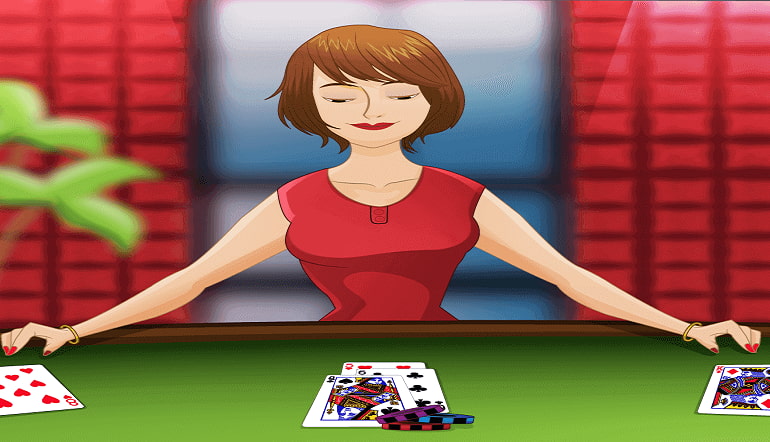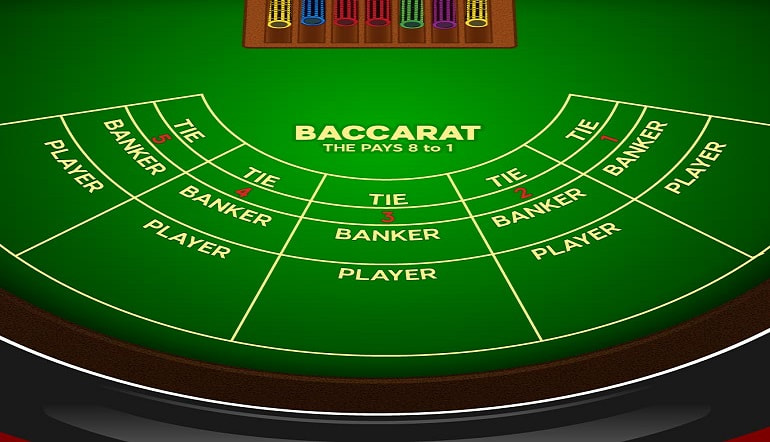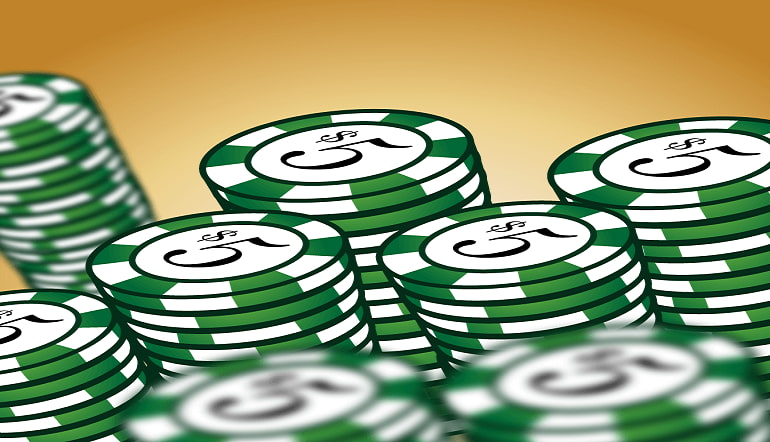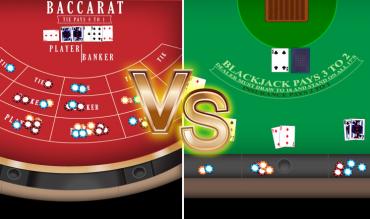Chances are you're familiar with Baccarat and Blackjack, possibly even a fan of both games. These casino games rank among the most popular card games of all, and for good reason. Players all over the world routinely flock to high roller Las Vegas card rooms, and Atlantic City casinos to enjoy power-packed sessions of Baccarat and Blackjack. While these games may appear to be similar, they are worlds apart in terms of tactics, strategy, betting, odds, and winning possibilities.
Baccarat is the quintessential casino whale’s game; it is played with gusto by the well-heeled, particularly players from Asian countries like China, Japan, Hong Kong, Macau Singapore, and South Korea. Corporate executives can't seem to get enough of Baccarat; they consider it the ultimate card game, the crème de la crème. The allure of Baccarat is overwhelming; it is a simple, yet refined game of chance. Considered by many to be a game reserved for aristocracy and royalty, Baccarat has all the makings of a majestic card game.
In essence, Baccarat is about choices. Players can bet on the banker hand, the player hand, or a tie. The game is governed by a strict set of rules, and players needn't make any decisions other than picking one of these options. The Baccarat croupier is responsible for the cards that are dealt to both the player and the dealer's hands.
There is no correlation between players and player hands, or dealers and dealer hands – all bets are on the table. Simple enough, right? That question is best answered by examining the odds of Baccarat hands, and the rules governing the gameplay.
The types of players who enjoy Baccarat are typically swank and sophisticated, suave and stylish. They know what they want out of life, and they certainly know how to pick a card game with great odds. They come dressed to the nines, ready to take on the casino with a game that has an incredibly low house edge. With Baccarat, players certainly don't have to labor over strategy-based gameplay; it's a simple decision – place your bets.

Table of Contents
WHAT MAKES BLACKJACK SO COMPLICATED?
Now, when it comes to Blackjack, there are so many more variables to take into consideration. Blackjack is truly a thinking person's card game. Every single card that is dealt changes the odds dramatically. With basic Blackjack strategy and card counting techniques, players try to ascertain the likelihood of the next card being a high-value card, or a low-value card, through a system known as a ‘running count’. The lower the count, the less likely a high-value card will be dealt, and the higher the count, the more likely a higher value card will be dealt. How does this make sense?
Assuming the standard Hi-Lo count system, the following card value count is assigned:
• Cards 10 – Ace > A value of -1
• Cards 7 – 9 > A value of 0
• Cards 2 – 6 > A value of +1
By deduction, a high negative count indicates that plenty of cards valued at 10, Jack, Queen, King, or Ace have already been dealt. This means that there are fewer high-value cards in the shoe. By contrast, if there is a high positive count this means that plenty of cards like 2, 3, 4, 5, 6 have been dealt and there are more high-value cards waiting to be dealt from the shoe.
It is worth pointing out what generally happens with high running counts, and low running counts. As a rule, a high running count with plenty of cards between 2 – 6 is typically favorable for the player. A low running count is typically favourable for the casino a.k.a. the Blackjack dealer.
Why? The dealer acts after the player. That's why running counts matter, particularly in single deck Blackjack games. Now let's throw a wrench in the works. Most casinos today don't deal Blackjack cards from a single deck in a shoe. Multiple decks of cards are used in an attempt to thwart Blackjack card counters. If casinos thought this would deter the Blackjack aficionados out there, they were wrong.
The true count is used by card counters to compensate for multiple decks of cards being used. To calculate the true count, one simply needs to divide the running count by the number of decks remaining. However, casinos have wised up to the card counters with the implementation of shuffling machines including continuous shuffling machines (CSMs) and automatic shuffling machines (ASMs). As you can imagine – these seriously reduce the efficacy of card counting at the casino.
If you're vacillating between Blackjack and Baccarat, it's clear that Blackjack requires much more mental acuity just to stay on track with the running count and Blackjack rules, let alone the strategies that are required to know when to hit, stand, double, split, or take insurance. More of that later!

WHAT ARE THE ODDS IN BACCARAT?
The odds are the statistical probabilities of specific outcomes occurring in a game. Baccarat, like any other casino game, is governed by a strict set of rules which determine payouts on specific outcomes. Once you have placed your bets in Baccarat, the payout possibilities are as follows:
• Bet on a Banker hand – 1:1
• Bet on a Player hand – 1:1
• Bet on a Tie hand – 9:1
• Banker Side Bet – 12:1
• Player Side Bet – 12:1
Of course, the Baccarat aficionados have crafted strategy guides to determine when the banker hand will draw a third card, based on what the banker’s total is, and what the player’s third card is. Lest we get ahead of ourselves, it's important to provide a summary of the rules of this game.
In Baccarat, the objective is to pick a hand – the dealer or the player – that will score closest to 8, or 9 (naturals). It is impossible to go bust in Baccarat since any hand total that exceeds nine automatically has the tens digit removed. As a case in point, King + 7 = 17. With the tens digit removed, that hand total is 7 in Baccarat.
As a betting person, your task is clear: Pick the Player, the Banker, or a Tie. The Baccarat dealer takes care of everything else, makes payments, and readies the cards for the next game.

BACCARAT VS BLACKJACK: WHAT SHOULD YOU PLAY?
Based on our discussion so far, you are likely leaning in favor of Baccarat as your game of choice. It's a relatively easy-going game with favorable odds to boot. Yet, many players default to Blackjack as their game of choice. It's quite bizarre why this happens, given that it's a much more difficult game to master, and every play must be carefully mapped out.
Consider the fact that the player is always first to act in Blackjack. This automatically puts you at a slight disadvantage, given that the dealer waits for the player to act and potentially bust, before acting at all. Additionally, the dealer's hand value is not known to players. Only one card is face up and the other is face down. This is precisely why the house has an edge.
If you're the type of player who wants to whittle away the house edge to negligible proportions, you’ve got a few options up your sleeve. You can master Blackjack strategy by reading in-depth Blackjack strategy guides by legendary playmakers like Ken Uston, Edward O. Thorp, Stanford Wong, Don Johnson, Tommy Hyland and Arnold Snyder. There is a ton of literature to work your way through, and by the end of it all, you will certainly have a better grasp of Blackjack the legendary card game.
That being said, even the most astute card counters among us cannot eliminate the impact of Lady Luck on our game. It's important to highlight that while Blackjack uses strategy-based decision-making processes, it is still a gambling game. Those who focus on the strategy component alone invariably fall victim to misfortune, and vice versa.
Baccarat is beautiful in its simplicity. Sure, it's a gambling game through and through. There's no strategy other than picking the type of bet you want to place. When deciding whether to play online Blackjack or online Baccarat, it's worth understanding a thing or two about the house edge. By now, it should be apparent that Baccarat is one of the few casino games with a low house edge. The other being Blackjack.
This comes with a caveat: the house edge in Blackjack depends upon the skill of the player. When played with perfect strategy, certain cardplaying experts believe that one can virtually eliminate the house edge, or whittle it away to negligible proportions. Many card players routinely flit between free Blackjack, Baccarat, and even online slots games. Funny thing is, that they enjoy doing this. It is worth mentioning however that Las Vegas casinos are heavily reliant on their Baccarat take to beef up GGR (gross gaming revenue), and casino managers eagerly await the arrival of Asian Baccarat players for precisely this reason.
This begs the question: If casinos are making so much money off Baccarat, is it really worthwhile for players?
We decided to explore this topic a little further by consulting several reputable sources like Forbes, notably an article by David G. Schwartz from June 21, 2018. According to the author, in 2017 Macau's 40 casinos made more than 88% of their $33.2 billion from Baccarat, and equally stunning is the fact that 18% of casino win on the Las Vegas Strip comes from Baccarat. The author goes on to explain that there is no hitting or standing for the player, as everything is determined by a set of rules.
As a game with one of the lowest hold percentages in the casino, the average house edge on Baccarat hovers around 1.2% for Player Bets and Banker Bets. However, if you decide to place a bet on a Tie, the house edge is typically 14% +. Casinos realize that they have a paper-thin advantage over players in this game. However, they'll take it because of the huge amount of money that is changing hands in Baccarat.
It's almost unbelievable that casinos in Las Vegas are prepared to take upwards of $150,000 per hand in Baccarat, knowing that the house edge is ever so slim. Across the Pacific, casinos in Singapore routinely take bets as high as $550,000 per hand – a testament to the incredible popularity of Baccarat.
It is well within the realm of possibility that a Baccarat player scoops up a fortune from a session of play, given the odds. For the most part, Baccarat games feature much higher minimum bets than Blackjack games. This is designed in part to attract high rollers and to differentiate Baccarat from other casino card games. Most avid Baccarat players are accustomed to dropping ‘big dollar’ on the table, and they have no reservations about doing so.
The probability of a Banker bet win with 8 decks in play -5% commission is approximately 0.4356. The probability of a Player win under the same circumstances is 0.4462. For a non-betting person, that's as close as you are going to get to 50-50 odds in the casino.
It's like betting on red or black, or odds and evens at the roulette tables, given that there are 18 red numbers, 18 black numbers, and either 1 or 2 green 0 numbers. Therein lies the difference between games like Roulette and Baccarat on the one hand, and Blackjack on the other. The former games rely on chance alone, while the latter has an element of skill and strategy to go with it. Let's crunch a couple of numbers to understand Baccarat odds a little better.
If we are using 8 decks of cards in a Baccarat shoe (dealing machine), the house edge is as follows:
• Player bets – 1.24% house edge
• Banker bets – 1.06% house edge
• Tie bets – 14.4% house edge
Don't forget – there is a 5% commission known as the vigorish in Baccarat games, but this only applies to the Banker bet. Viewed in perspective, the probability of winning on a Banker bet is 50.68% and the probability of winning on a Player bet is 49.32%.
Now for the interesting part – the true house edge. This percentage excludes tie bets. The true house edge for the Banker bet is 1.17% and the true house edge for the Player bet is 1.36%. You may find it useful to research a game known as Punto 2000. This Baccarat game eliminates the 5% commission on Banker bets and pays 1:2 on winning Banker bets.
BACK TO BLACKJACK
We indicated that we would circle back to Blackjack actions such as when to hit, double, call, stand, or take insurance. These actions are largely determined by a Blackjack playbook which indicates the most opportune times for these types of decisions. Players can beat the dealer any time they have Blackjack, which typically pays 3:2. If your first two cards total 21, you have a natural and you are a winner.
If you are unlucky enough to encounter a situation where the dealer also has a natural, your bet will be returned to you. The dealer typically draws to 16 and stands on all 17s. It's important to understand the difference between a hard 17 and a soft 17, because this can affect the odds in the game. A soft 17 is a hand where the Ace can assume a value of 11. A hard 17 is a hand where the Ace assumes a value of 1. The only way to win Blackjack is when your hand value beats the dealer’s hand value, but doesn't exceed 21.
There are many rules in play with Blackjack, some of which are beyond the scope of this article. Suffice it to say, it's important to have a basic understanding of when to hit, when to stand, when to take insurance (if at all), when to double, and when to split. For example, if your first two cards total 11, always hit because you can never bust by hitting. However, if your initial two cards total 20 you would be hard-pressed to hit because you run the risk of busting. Odds dictate that you are more likely to win at Blackjack as your hand total approaches 21.
Fortunately, you don't have to play against other players in most Blackjack games – it's player versus dealer in a battle royale for the highest-ranking hand. As a serious contender in this card game, you will always be looking for ways to reduce the house edge.
This is where things like the ability to double down on certain hands can become an issue. There are many variables which will alter your winning chances in Blackjack, notably what other players are doing vis-a-vis the card count. Blackjack odds change all the time, even after you have acted and these changes will impact your game. If you're okay with that, and you enjoy strategizing to the nth degree, this might just be the online casino card game for you!
